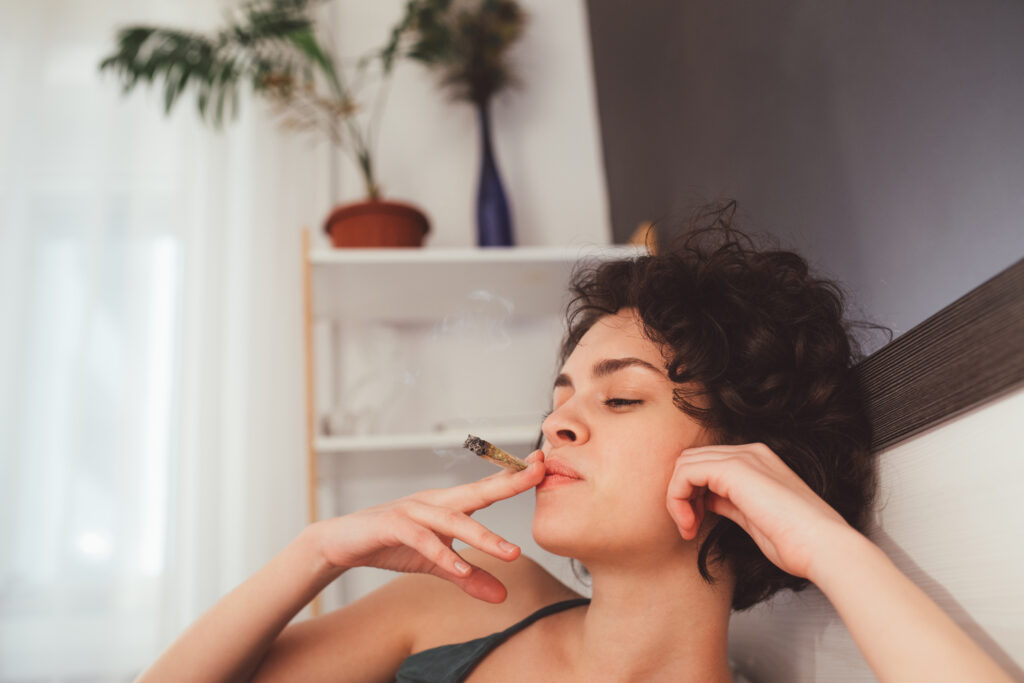
Cannabis and Sleep
Cannabis is widely recognized for its impact on sleep. The connection between cannabis and sleep is intricate, influenced by factors like strain, cannabinoid content, dosage, and individual characteristics. The psychoactive cannabinoid in cannabis, THC, is known to possess sedative properties that aid in initiating sleep, potentially reducing sleep onset and increasing total sleep duration. However, it can also disrupt the normal sleep cycle by suppressing REM sleep, crucial for cognitive functions and dreaming. In contrast, CBD, another significant cannabis compound, shows promise in improving sleep quality by reducing anxiety and promoting relaxation, potentially benefiting those with sleep disorders or insomnia. It’s essential to acknowledge that the effects of cannabis on sleep can vary among individuals, and consistent or excessive use may lead to tolerance.
While it’s widely acknowledged that cannabis can help individuals fall asleep, its potential for assisting those with sleep disorders remains an unanswered question. Insomnia affects a significant portion of the population, and chronic insomnia can impact various aspects of life, including mental health, ability to participate in daily tasks, and relationships. Here are some key facts and statistics that can help empower your decision making around if cannabis could be beneficial for your sleep.
Our natural sleep patterns are crucial for overall health and well-being. Stressors or lifestyle disruptions can lead to sleep disturbances, which cannabis may help alleviate, whether related to a sleep disorder or not. If you suffer from chronic pain, we know the cortisol released to help manage stress in the body contributes to poor sleep, and cannabis, with its anti-inflammatory properties (CBD) and analgesic qualities (THC), can aid those experiencing pain in achieving better sleep. Stress-related sleep issues are also common, and many cannabis strains can reduce anxiety, providing relief from an overactive mind. However, it’s vital to note that quick sleep induction doesn’t always equate to excellent sleep quality. Experimentation with different strains, doses, and monitoring personal experiences is recommended.
Not all cannabis strains are the same, and individuals react differently. Side effects are possible, and dosage matters. Some studies suggest that terpene composition, alongside cannabinoids, plays a crucial role in sleep effects. As our understanding of how cannabis affects sleep is still in its early stages, personal experimentation is often the best approach. It’s advisable to start with a small dose, preferably on a weekend, to avoid overconsumption side effects like grogginess or minor headaches. Recording experiences in a journal can help identify the ideal dosage and strain for individual needs.
THC tends to reduce REM sleep, potentially beneficial for those with frequent nightmares, such as patients with PTSD. However, long-term REM sleep suppression is not recommended due to its importance for cognitive and immune function. CBD, on the other hand, may increase REM sleep onset, making it a potential remedy for insomnia unrelated to nightmares. Considering a blended THC and CBD product may allow the benefits of both.
For those seeking cannabis as a sleep aid, it’s generally suggested to consume it about an hour before bedtime. High-THC strains can trigger anxiety in some individuals, so lower-THC strains are recommended for sleep-related relief especially if you are just starting out. Indica or indica-leaning hybrids with specific terpenes like myrcene, caryophyllene, terpineol, and linalool are often preferred for inducing sleep.
This is not medical advise. Please consult with your doctor before adding any products to your routine.
FireFlower Craft Cannabis Dispensary » Cannabis Flower » Cannabis and Sleep
